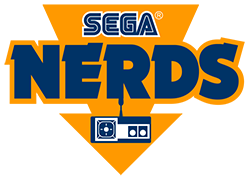
Should SEGA Get Back into Consoles, or is there Another Way?
SEGA is one of the most well-respected brands in the world of video gaming despite its drastically decreased footprint since the turn of the millennium. It’s impossible to overstate the fandom and importance of SEGA, particularly in the early years of gaming. Industry-leading consoles and top-class game franchises enabled them to stand out, but as competition ramped up, SEGA found itself struggling to match on the business front.
Still, SEGA continues to carry a lot of weight, which is why the company can viably pump out retro AGES packages to sell its classic creations on new hardware. Still, SEGA made its name in consoles, and in this age of nostalgia-hunting, remakes, and reboots, many have quietly been hoping that the former Japanese giant would give console creation a modern attempt. There is, however, another way that SEGA could re-enter the market.
New Console System Seems Incredibly Unlikely
SEGA’s last globally-released console came in the form of the SEGA Dreamcast. Initially released in 1998 in Japan, it ran until 2001, needing to compete with the incoming, DVD-enabled Sony PlayStation 2. It’s said that over $200 million was lost in the last year by SEGA, even despite the Dreamcast being internet-connected. At the end of January 2001, SEGA officially stepped away from home consoles – likely saving the company.
In the run-up to the big SEGA 60th Anniversary in 2020, many speculated that an attempt to break back into home console gaming was on the horizon. Admirably, the President and CEO of SEGA, Haruki Satomi, was quick to quash these rumours, politely explaining, “that’s not happening.” Instead, the celebration gave out a bunch of games to get for free and keep, and some more free in-game content for the likes of Two Point Hospital.
Regardless of SEGA’s stance, retro gaming is still hugely popular, with the generations that grew up with SEGA consoles in the 90s still being very fond of the games, consoles, and the brand. A Kickstarter project to bring back a dedicated SEGA gaming magazine – SEGA Powered – even managed to accrue £12,722 from a £5,200 goal. The fandom is there, but the home console market is far too competitive and high-grade for a company like SEGA to try to barge in – even the ‘console killer’ backed by Google, Stadia, was essentially DOA.
Another Way for SEGA to Become a Gaming Platform Once More
Much of what SEGA does these days is publish and produce games, with Sonic the Hedgehog being the face of the franchise IP. They put content from their studios onto other consoles and platforms without really consolidating anything into a total SEGA offering. As has been seen across the board, there’s space for innovative and cost-effective platforms to emerge through a subscription-based business model. However, were SEGA to go down this road, they’d need to offer a truly enticing service.
Naturally, a full library of SEGA games available to play, from retro classics to ones from major third-party franchises like Total War and Football Manager, is a must. However, in a competitive space like gaming platforms, it’d be wise to take a leaf out of the books of some of the best online casinos in the UK, which, in an even more competitive market, sites offer welcome bonuses to new players. These range from a £100 bonus and ten percent cashback to wager-free spins. For SEGA, this could be replicated as credits that can go towards buying games outright to an outright free game to download on sign up – as Epic Games offers – that’s not tied to the subscription account.
As for keeping players on the service, SEGA would need to add new games and expansions, like bringing back retro classics, and host online multiplayer modes. Equally, those with an account could be rewarded in-game currency for SEGA’s many mobile games, like Sonic Forces and Sonic Dash. Perhaps exclusive game modes, expansions, or events could be infused. SEGA has many great development teams on their books. The SEGA studios create games like Judgement, Super Monkey Ball, Virtua Fighter, Yakuza, Sonic the Hedgehog, Sakura Wars, the Olympics games, Phantasy Star, and they’re still pumping out arcade games – which could be played through emulators on a SEGA platform.
Then, they also have Creative Assembly (Total War), Sports Interactive (Football Manager), Hardlight (Sonic the Hedgehog), Relic Entertainment (Dawn of War), Atlus (Persona), and Two Point Studios (Two Point Hospital). So, they could follow a similar model to GOG.com – from developers CD Projekt – and bring in some indies. SEGA is brimming with brand trust, nostalgic affection, top-class studios, and world-renowned brands. If they could keep the price low and bonuses appealing, should SEGA want a bigger footprint in the modern gaming world, a SEGA subscription platform could work very well.





